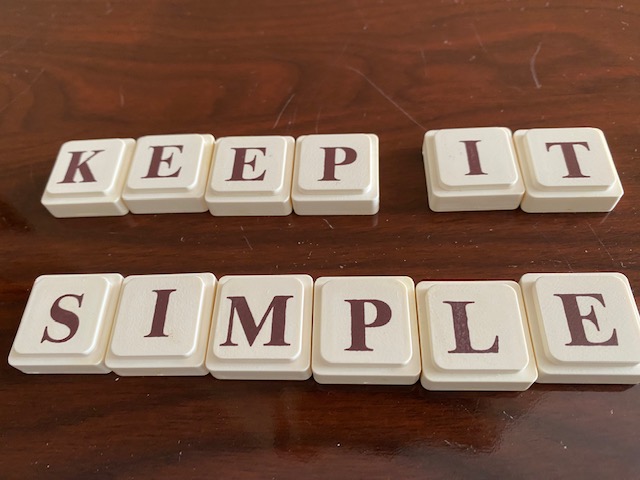This article is a follow up to the last blog article titled “Keep your communication clear and concise.” It offers more examples of brevity in writing by eliminating needless words.
Take the example of someone setting a “new record” in pole sitting. I have never heard of a record that was not new. So, trash the word new. Similarly, a flight attendant tells us to “Take all your personal belongings with you when you deplane.” Do you have belongings that are not personal? Would deleting the word personal confuse anyone?
Our daily conversations are overflowing with superfluous words. But you need not carry them into your writing. Because, when you write, you can also edit. If the opposite of a word doesn’t make sense, it’s a safe bet you can delete it. So, you don’t need conclusive if “inconclusive proof” doesn’t make sense. Or desirable if there is no such thing as “undesirable benefits.” Or good if a “bad variety” doesn’t make sense. Or extremely if you would never use “slightly ordinary.” Or regular if there is no such thing as “irregular weekly meetings,” and so on.
You could also be assured that all destinations are final, all choices are possible, all risks are calculated, and all requirements are mandatory, so you can delete the words in italics in the following expressions: final destination, possible choices, calculated risk, and mandatory requirement.
Of course, the act of writing itself tempts us to use more words. Parkinson’s law seems to take hold and the number of words expand to fill the space available. So, we start off with “It has come to my attention…” or “In the not too distant future…” or “Please find attached…” Just say what you want to say.
And why use a longer word when a short word will do? You can almost identify those who have studied the word power section in the Reader’s Digest. “Many” becomes “numerous,” “use” becomes utilize”, “end” becomes “terminate,” “method” becomes “methodology,” “first” becomes “initial,” “do” becomes “implement,” “try” becomes “attempt,” “effect” becomes “effectuate,” and “function” becomes “functionality.”
Keep it simple. There are no points for pomposity or cash for complexity or victory in verbosity. Keeping written communication clear and concise is crucial. And remember that clarity takes priority over brevity. That’s why I used both words, clear and concise, when concise means both short and clear – expressing what needs to be said without unnecessary words. According to the Oxford dictionary, “giving a lot of information clearly and in a few words.” If clarity requires a few more words, go for it.
It seems that the tech world has latched onto 0nly the brevity portion of conciseness and taken it to the nth degree. Instead of turning verbs into nouns, it has turned nouns into verbs. Therefore, in emails, DM’s, (direct messages,) social media, and other platforms, we have Google (a search engine) as a verb that means “to search online.” And a tweet, a sound originally uttered only by birds, is now a verb meaning “post a message on Twitter.”
Acronyms have exploded into everyday correspondence such as LOL (Laughing out loud,) BRB, (Be right back,) SMH, “Shaking my head) and even fewer common ones, combined with emoticons (character combinations or pictorial symbols.) A new dictionary may be required for us non-techie people so we can decipher communication.
In my day, we did have a few acronyms such as FYI (For your information,) ASAP (As soon as possible,) and KISS. (Keep it simple, silly.) But technology has helped take it to a whole new level.
I suppose our language is evolving, with new words, changed meanings, cryptic phrases, acronyms, abbreviations, and informality, all leading the way. But I hope everyday language isn’t reduced to CU, HT. KPF! That’s going a little too far.
PS: KPF means Keep the faith.


Recent Comments